Sonya and Necota Staples have been traveling together since the early days of their relationship. Their first adventure outside of the US was an escape from routine, a chance to relax—what most people might envision as a vacation. But an unfortunate interaction led them outside the walls of the all-inclusive resorts. And it was then that they realized the incredible cultural experiences and authentic human connections that had been waiting for them.
However, they are quick to point out that international travel isn’t a prerequisite for having a unique cultural experience. Within the boundaries of the US, there are unique communities just waiting to be discovered. And sometimes the most unexpected and wonderful experiences take place between your origin and final destination.

Perhaps that’s why overland travel has felt so appealing to this adventurous couple. They’re about four years into their experience with overlanding, and while it’s relatively new to them, it was clear to me when we talked that they’ve already accumulated a wealth of knowledge around vehicle-based travel.
When they first started camping and overlanding, they knew that they needed a truck with basic four-wheel drive. With a budget of approximately $6,000, Necota began the search. After considering all of the usual suspects like the Land Rover, Range Rover, and various Toyota platforms, he settled on the 80-Series Land Cruiser.
In a stroke of luck, Necota found a reasonably priced 1997 double-locked Land Cruiser on Craigslist which they lovingly named Frank the Tank. As capable as their new vehicle was, the Staples sought input from the Land Cruiser community about upgrades that they could add to make Frank even more appropriate for off-road travel.
They performed the 7-pin mod which gave them the ability to triple-lock the vehicle in high or low range, added an auxiliary fuel tank, ARB front bumper, a custom rear spare tire mount, and a Warn 9,000-pound winch with synthetic rope. They also installed a Front Runner roof rack, Rocky Road rock sliders, KM3 33-inch mud-terrain tires, a Blue Sea dual battery setup, ARB refrigerator, and an Old Man Emu 2.5-inch lift.
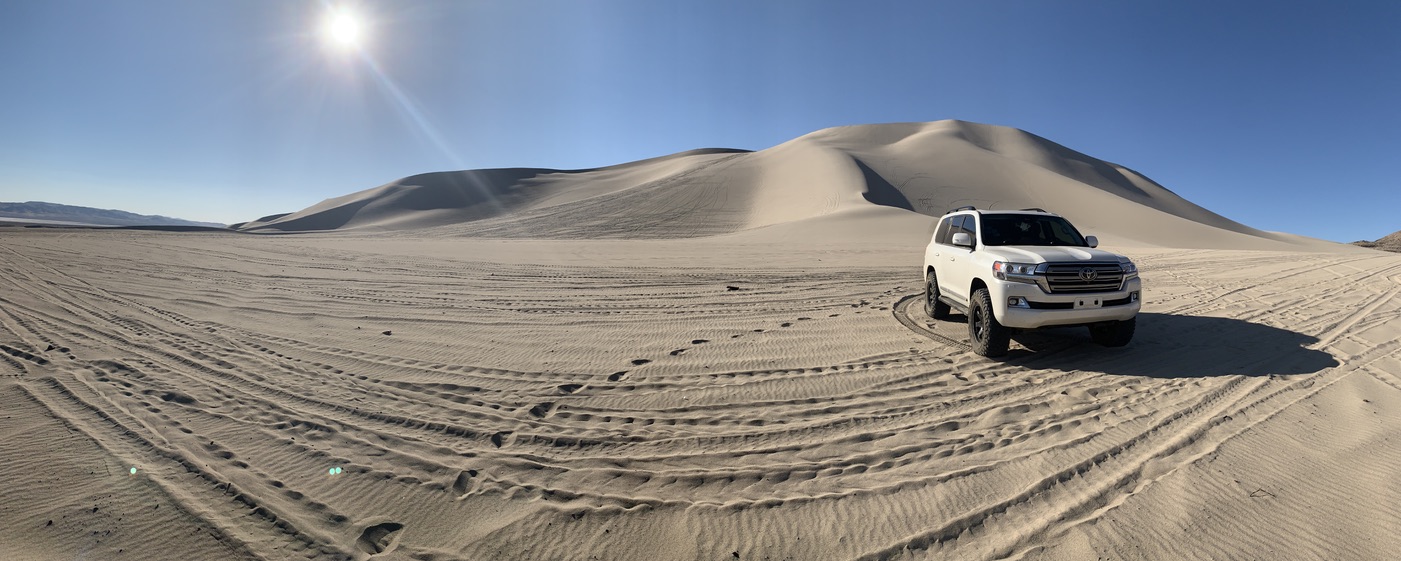
Their first cross-country trip saw them driving through the Western US, visiting iconic destinations like Moab, Sedona, and the mountains of Colorado, but it wasn’t long before they took Frank down to Colombia, South America, where they really put him to the test.
Check out their Colombia overlanding playlist on YouTube
I recently caught up with Sonya and Necota on the phone to learn about their plans to leave their full-time jobs and pursue extended overland travel in the US and overseas. We also talked about some deeper topics, like the representation of marginalized communities in the outdoor and overland spaces.
How has it been preparing to leave your jobs and hit the road full-time?
Sonya: I think a lot of it is the anxiety around going full time, but hearing other people talk about it, I think that’s normal.
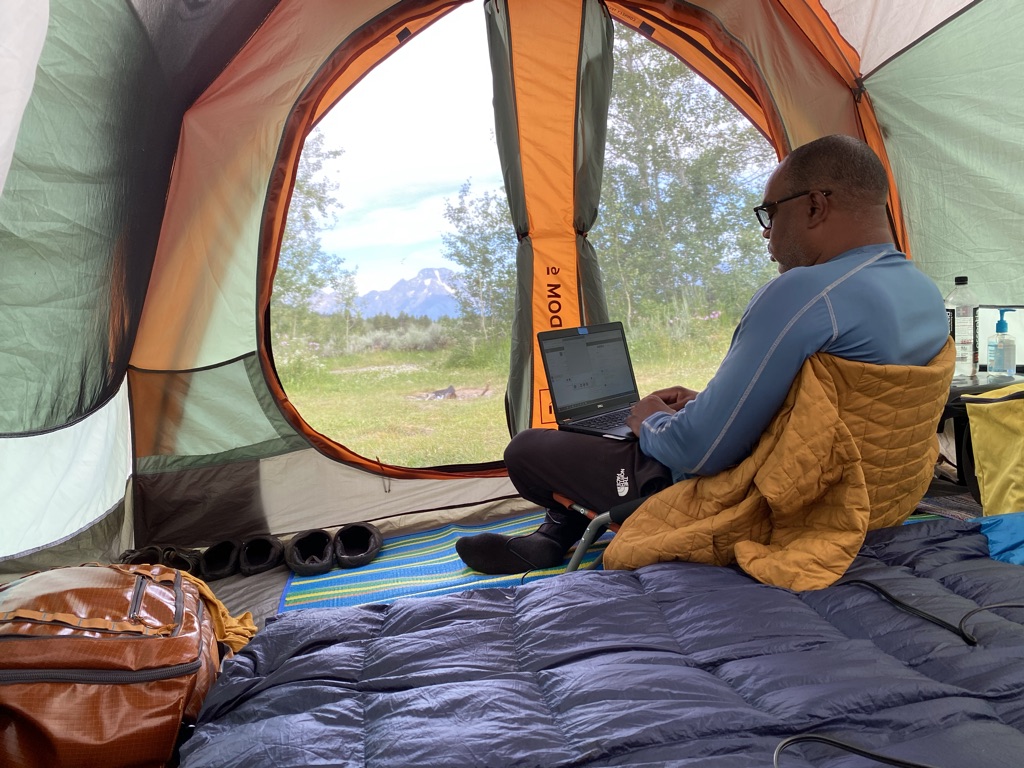
Necota: It’s been a roller-coaster, up and down—just trying to figure out what’s our next move, what we’re gonna do, where we’re gonna go, and how we’re gonna do it. It’s like we’re letting go of life. Everything we’ve worked for and up to at this moment in our lives, we’re going to ditch 90 percent of it and go off into the wild blue yonder—and no clue what’s coming. And it is scary as hell.
What do the next steps look like?
Sonya: The plan right now is to sell our place and fully commit. Some of the other advice we were given was to let go of as much as possible. As far as the physical attachments, we’re gonna try to let go of as much of that as we can.
At the beginning of Covid we saw the writing on the wall, that our lives would be drastically different. So while most people were still trying to wrap themselves around the idea of wearing masks, we were already purging. We got rid of a lot of our professional clothing. We’ve already started reshaping our lives because of Covid, but now [with travel on the horizon] it’s the larger items. We’re going through the mental process of what we want to keep and let go of.
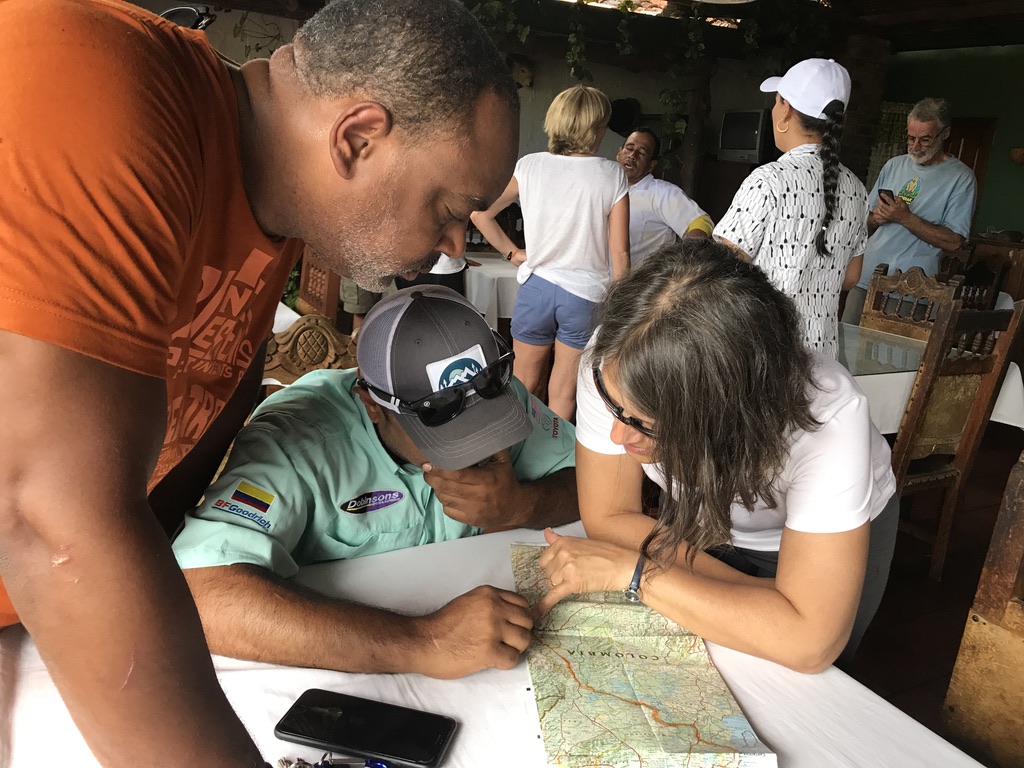
How long have you been traveling and overlanding?
Necota: We’ve been traveling forever—that’s never changed—but the overlanding part has been three or four years ago now. Our first cross-country trip was out to Flagstaff, Sedona, and Moab—that was the first one. We had overlanding experiences before that, but at the time we didn’t know that was exactly what we were doing.
Tell me about how you find enough value in travel to make a major lifestyle change.
Sonya: As a couple, we’ve always dreamed about traveling the world together. Once we started overlanding, the possibilities and opportunities really began to open up. We saw that there was so much more in this country to see. And with world travel, it’s the same—not just going to the major cities, it’s seeing everything that’s in between, just like seeing everything that’s in between Atlanta and Los Angeles. Overlanding is affording us the opportunity to see so much more, so although we are closing or wrapping up one chapter, it’s really opening up more space and freedom to explore more.
Necota: Yeah! To explore another space entirely in a sense. Going to places like Rio, more often than not, you go there for the city, and parties, and stuff like that. But that’s kind of an old way of traveling. Now, getting out to see the Amazon River is far more enticing and enriching because we get to understand more about the people that live there on a day-to-day basis. It’s a different kind of experience than visiting urban areas. We have grown to appreciate the cities, mountains, but most importantly, different cultures.
Do you think that international travel is something that everyone should experience? What is there to gain from being immersed in other cultures?
Necota: It’s not [international travel specifically] that is beneficial. It’s [about the] immersion into another culture. All-inclusive resorts can be very attractive [to people who work hard and want to escape for a short vacation], but once you get into touring places, and trying to be a little bit more culturally submerged, you have a different type of experience. And that’s what we think is more valuable. We don’t want to sit at a dinner table with someone who said they ‘visited Jamaica,’ and when you talk to them, [it turns out that they didn’t step foot outside their all-inclusive resort.]
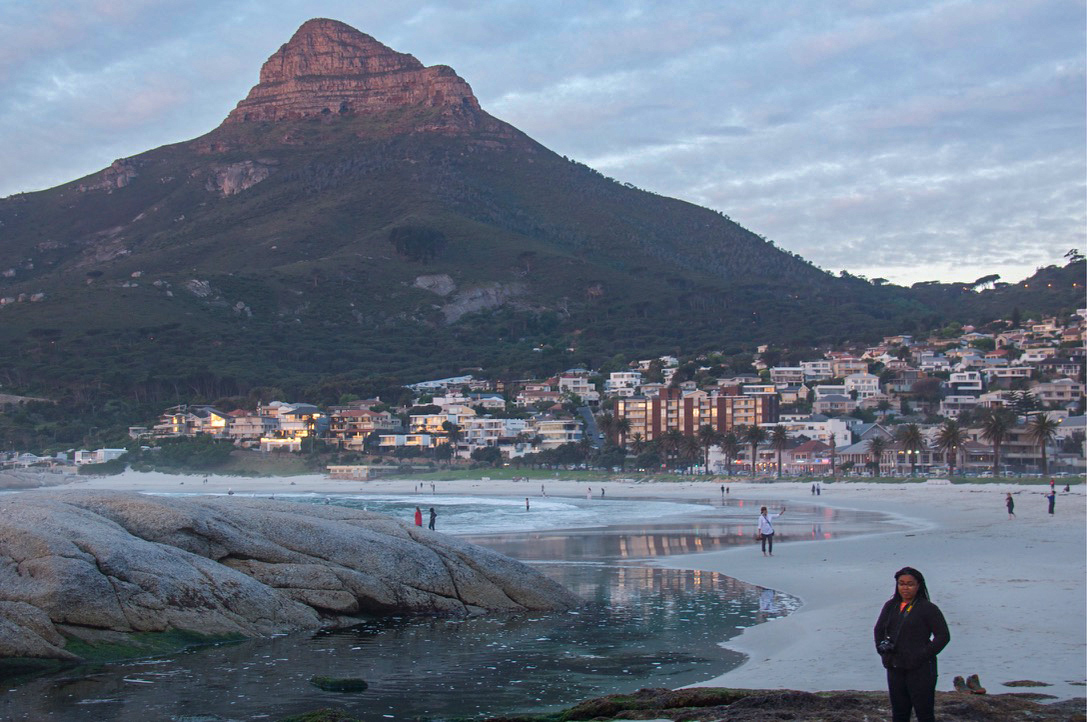
Sonya: It’s not traveling internationally that we think is important, it’s traveling internationally and being open—and for that matter, it’s being open wherever you go. You don’t need to travel internationally to experience something different and see another person’s perspective. I do think more people [can benefit from being] open to different experiences, different perspectives, and different views. I think in general, that change in mindset can make people more of a ‘global citizen.’ Just because you are well-traveled doesn’t make you a global citizen.
You once told me the outdoors saved your marriage. Can you elaborate on this?
Necota: During our dark times, we were just always disconnected in many ways in our marriage. We had to go to counseling, we had very long conversations to get us back to center. Marriage is a finicky thing; I think a lot of people come in with expectations of what they think a husband or wife is, and the other person conversely does the same thing. I think we planted a lot of seeds of resentment early in our marriage and it kind of followed us. But ultimately, [the problem was that we weren’t understanding each other].
Sonya: We had some huge communication gaps, and at one point our therapist gave us the advice to say “yes” to each other. In saying yes to each other, Necota accepted this wild and crazy idea of going camping. And what camping and being outdoors did was let us detach from the reality that is the day-to-day ruts of life. It gave us something else to work through, like building a fire in the rain or being cold. And being outdoors and camping was a huge team-building [experience]. Just being out in nature, there is this magic. If you allow the magic to work on you, it really does bring a level of peace and healing. It allows you the space to think about what’s hurting you so that you can give yourself the space to heal. The real thing that helped us was going out and having a common goal to work through together.
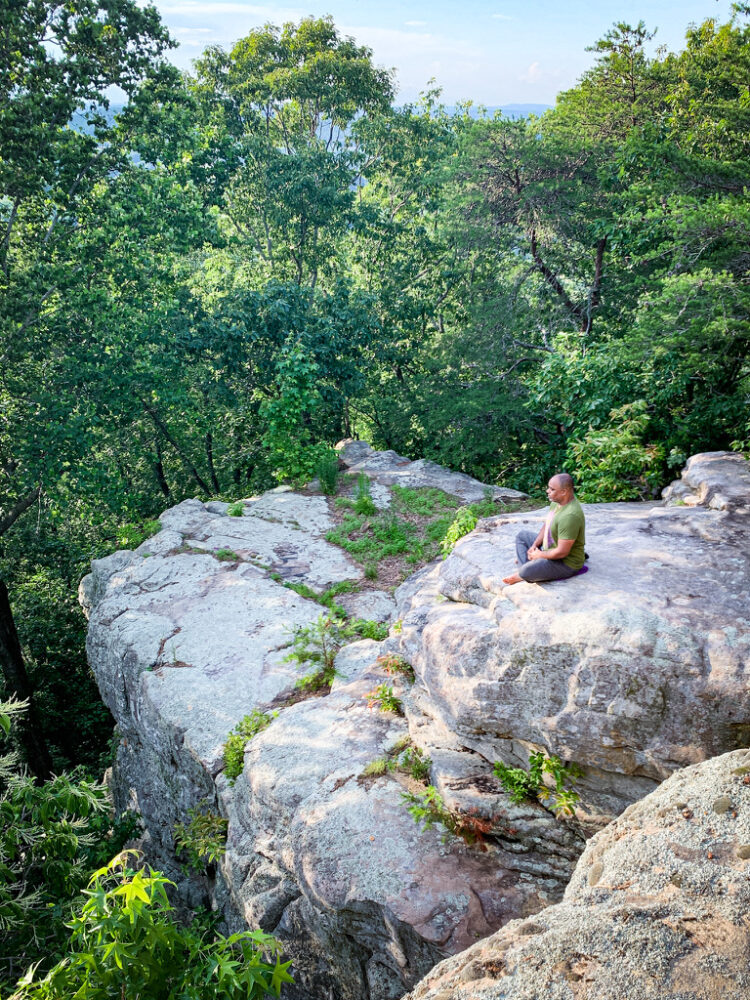
Necota: It’s like, if this makes it that much easier for us to be married, how do we keep doing this and repeating it so that we can grow? And through that experience, we move further and further away from the dark times in our marriage when we weren’t connected and weren’t communicating. And we left that space, and we started to move step by step to a relationship where we were both happy. We know that we couldn’t have gotten there without camping. It opened us up to each other in ways we never [could have imagined].
You’ve mentioned it’s difficult to feel welcomed in the outdoors and overlanding communities, where marginalized people often don’t have representation. Is your Instagram account, @BlackPeopleOffroad, an answer to this lack of representation? Or is it more?
Sonya: When we started our first Instagram account, @StaplesInTents, it was really more of a passion project. Our friends and families were like, ‘We don’t understand what you do when you go outside. Why are you going camping?’
Not only is there a huge gap in terms of representation, but there is also a huge knowledge gap in the outdoor space. So we initially started to fill that gap to show that Black people do go outside and representation is important—but also, this is how you can do it, starting from scratch, learning as you go. Oftentimes, you only see the good stuff on social media, so it was important for us to show everyone the good, the bad, and the ugly—everything we went through including our learning process.
But with @BlackPeopleOffroad, it was a little different, because that Instagram account already existed but it had a different name: @FZJ80_FrankTheTank; that was our truck.
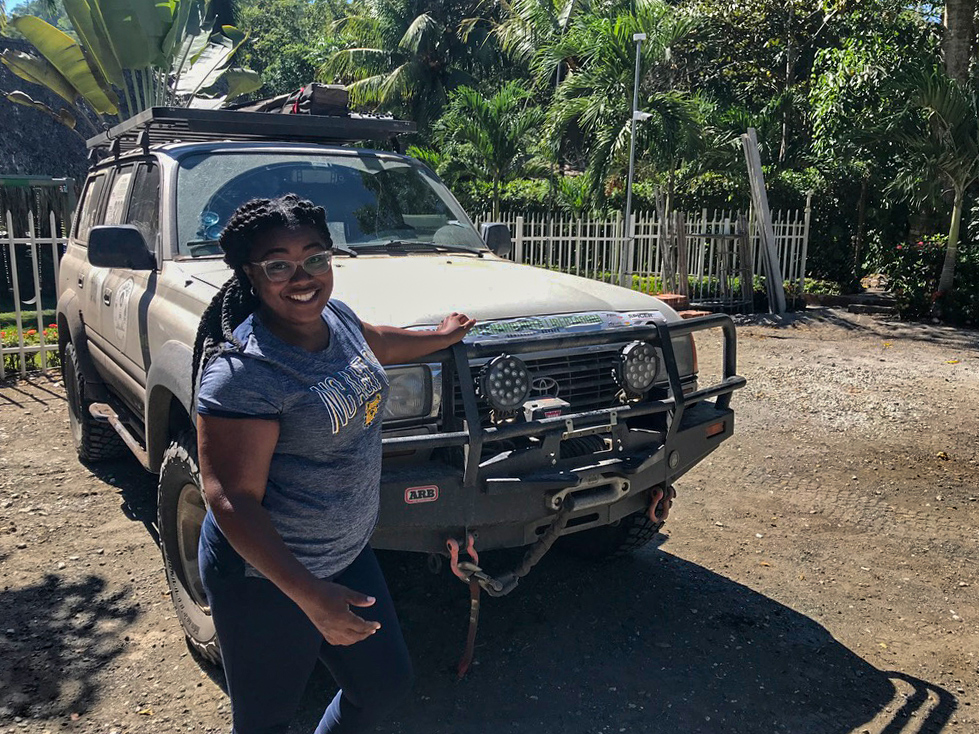
Necota: What was painful about that part of the journey was that we’ve received several texts and emails since [changing the account name to] @BlackPeopleOffroad saying, ‘There’s no racism in overlanding. Why are you doing this? You’re being racist.’
But when we were trying to be part of the overlanding community as @FZJ80_FrankTheTank, a lot of people just ignored us, and Black people couldn’t find us or even relate to us because we were invisible. In the grand scheme of FJ80s out there, ours was just another one. So if a Black person is even remotely interested in a Black-owned Land Cruiser, they aren’t going to see it.
One day, Sonya and Necota took some friends out on a 4×4 trail with the intention of creating an inclusive offroad group with a mix of people, Black and White, where everyone could feel comfortable together. But before getting very far down the trail, they began talking with their White friends who came along, who, unbeknownst to them, brought an “arsenal of firearms” in fear of the potential for racially motivated violence that could endanger their entire group.
Necota: At that moment, we recognized that there were allies, people who are actively supporting and working towards racial equality, who didn’t have an environment where they could be honest about their views and desire to support their Black friends. They would sometimes find themselves amongst people who don’t necessarily believe that Black lives matter, and in these places, they would often hide their true feelings. So we created @BlackPeopleOffroad to offer a place where we can collectively just be brothers and sisters, regardless of our skin color, and just do the thing that we say we’re doing, camping or offroading, or whatever that is.
With @BlackPeopleOffroad, it’s a two-pronged approach. In one instance, we’re wanting to be visible to other Black people and offroaders, to make them aware that you’re out here and we’re collectively having a very similar experience. But it’s also for our supporters, to have that same kind of space, so they can feel that there are more people out there aligned with their views—that they’re not on an island, that there’s a community that values people, BIPOCs, and all.
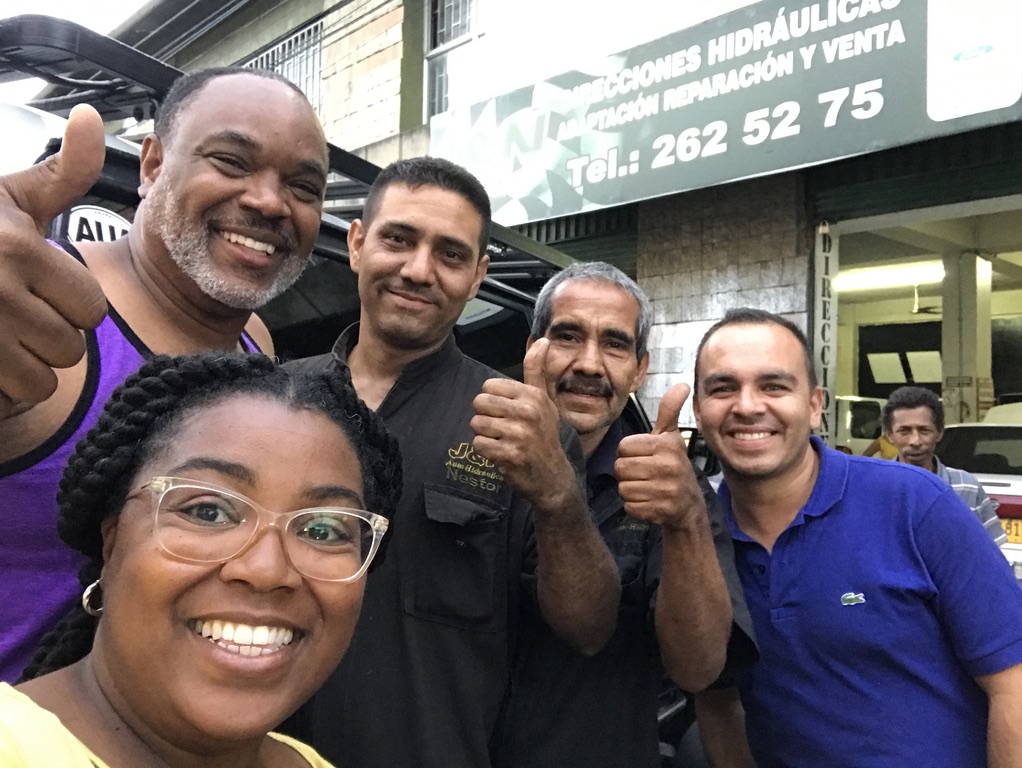
Sonya: Black People Offroad is definitely a community to give representation in offroading and overlanding to other Black people, but more so than that, it is an all-inclusive community, where if you truly believe that all lives matter, thus Black lives matter, you can come and you can be welcome. It’s very hard to be a Black person, and I’m sure that it’s also hard to be an ally, and even though you don’t always get it right, you just gotta take one on the chin sometimes.
Black People Offroad is about being part of a community, not being an invited guest. When you show up here, you’re not expected to “park your Blackness over there,” as Sonya and Necota have described experiencing in the off-road and 4WD world. And while this community celebrates what makes us all unique, be that your culture, your taste in music, who you love, or what makes you excited to jump out of bed every morning, it’s ultimately about being respectful and loving human beings together. It’s about supporting one another and ensuring that everyone gets to participate and take advantage of the outdoors. “You are just as welcome as the next person” is their underlying message.
Necota: We all have to deal with insects and animals [in the outdoors]; we all have those things that are continuously challenging us when we go out to camp. But [Black people] have another layer—people in this country [who] don’t mind making you uncomfortable [to the point of losing sleep at night].
Sonya: And I think it’s not just a Black thing—it’s a marginalized community thing, even women. If you talk to a woman and you ask them about going out into nature by themselves, they would have some of the same fears. This is not just coupled with sex, it’s also about race. Part of Black People Offroad is having that conversation and having that dialog, to put it out there that, yes we go experience nature, but at the core, there are some different emotions that we experience as a Black person, or even as a woman, that you may not experience. And, just because you don’t experience it, doesn’t mean that it’s not valid. I think it’s really important to have that conversation and put it out there that there are multiple perspectives and multiple views about how people feel in the outdoors.
We actually get the comment that we’re being racist because of the title Black and our name Black People Offroad, like we’re being exclusive. But I find it really interesting that although we say this is a community for everyone that we’re told we’re being exclusive. For so long on the other side of it, there wasn’t White in the title of anything, but it was exclusive.
Necota: It was exclusive; we were made to feel unwelcome in any number of ways.
Can you offer suggestions for White people to better support the BIPOC community in the outdoors and overland space?
Necota: I’ve got an easy one, and it’s not selfish, but it does drive a point. Buy the T-shirt, a Black People Offroad T-shirt, and wear it to places where [it’s going to start a] conversation. If you want to know what it feels like to be in our skin, put that shirt on and walk out there and just see where it goes. At that point, there’s two things: you become more aware of the energy we receive just being in our own skin, but [it might also start a] conversation with someone. You become a beacon, a person that they are looking at—a White guy or White woman, and you guys are now having that conversation: Why do you have on a Black People Offroad T-shirt and you’re not Black? Well, it’s funny you should ask that…
If I was to come roll up to a campground or a festival and I saw a White guy in that shirt, well now me and you are gonna have a conversation, maybe, or I [might] feel more comfortable with you. [The fact that] somebody out there sees me, and that there is more safety where we’re going out—we’re seeing people that we have something in common with—that is representative of a larger acceptance in the outdoors community.
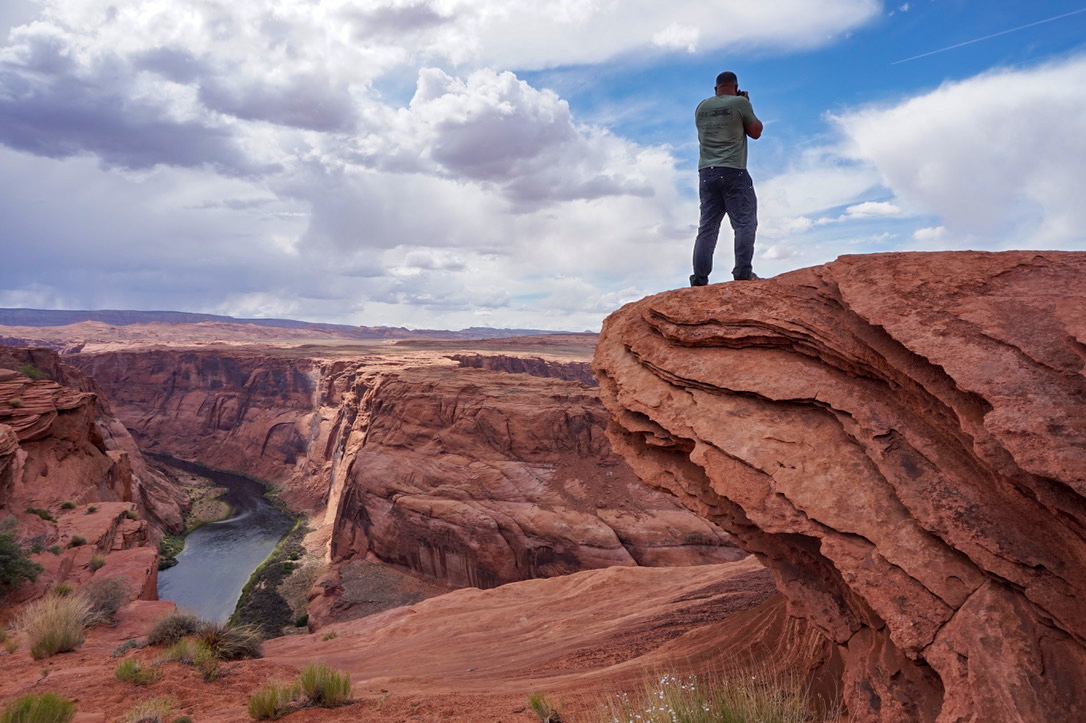
Sonya: This last year, we’ve been having a conversation about having a tough conversation. The fact that we have to talk about having the conversation is mind-blowing, but the thing is, Black people don’t need to have the conversation, we know what the deal is, and there are some allies that also understand. I think it would go a really long way if those allies would have a tough conversation with people who don’t understand—because you saying this is wrong, comes across very different than me saying this is very wrong. Being courageous to speak up and say something—that would go a long way.
Necota: That would go a long way to put things in perspective in conversations with other people. It would go a long way in helping marginalized people feel safer when they go outdoors. I don’t think a lot of our White allies really understand it and I really feel like a lot of them are going back to sleep. I feel like that awakened moment seems to be fading.
As we approach summer, Sonya and Necota are continuing to build an inclusive community while they simultaneously determine the best way to transition into overlanding full-time. It’s a big challenge, one that produces conflicted feelings, like they are leaving everything they have worked towards their whole lives.
But owning a house and having a stable job are safe plays, and the truth is, this adventurous couple are no strangers to the rewards that come with taking risks. For now, Sonya and Necota are continuing to explore the backcountry and four-wheel-drive trails of the East Coast, but they have big plans ahead which include shipping their truck to Africa for extended overland travel. We can’t wait to see where they go!
You can connect with Sonya and Necota and follow their adventures on YouTube, Instagram, and on their website, Staples InTents. Also, make sure to check out their inclusive social media community, Black People Offroad.
Our No Compromise Clause: We carefully screen all contributors to make sure they are independent and impartial. We never have and never will accept advertorial, and we do not allow advertising to influence our product or destination reviews.


